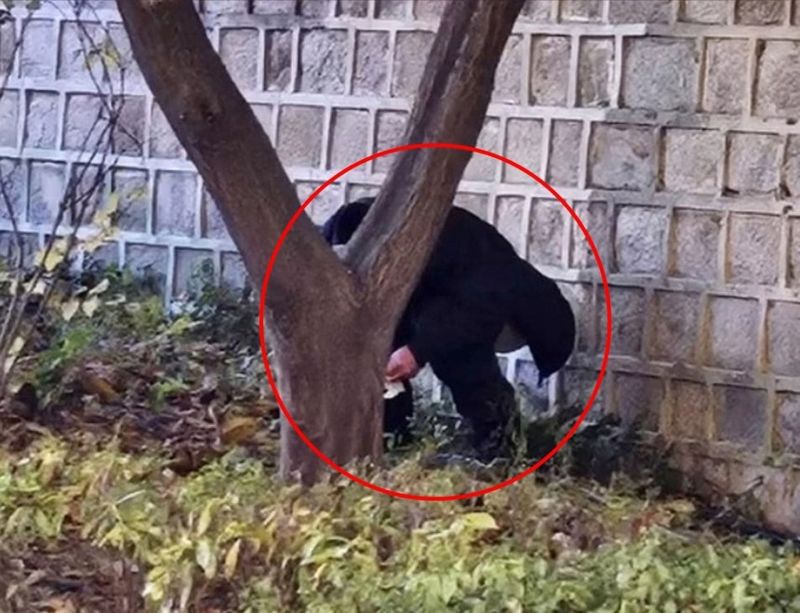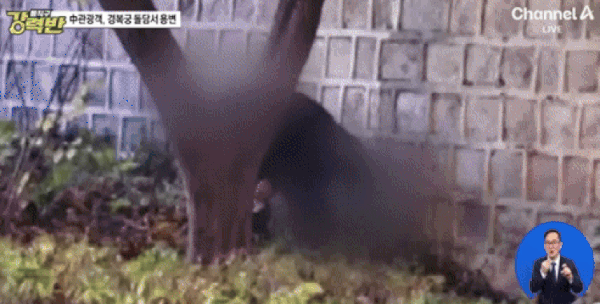"What Are They Doing to Another Country's Cultural Heritage?"... Chinese Tourist Fined Only 50,000 Won for Defecating at Gyeongbokgung Palace
- Input
- 2025-11-14 14:32:29
- Updated
- 2025-11-14 14:32:29

[Financial News] A Chinese tourist was fined after being caught defecating beneath the stone wall at Gyeongbokgung Palace in Seoul.
According to police on the 13th, a man in his 70s from China was fined 50,000 won for public urination after he was found defecating near Sinmumun, the north gate of Gyeongbokgung Palace, on the afternoon of the 10th.
It was reported that dozens of Chinese tourists were present at the scene. There were suspicions that a Chinese woman, believed to be part of the group, may have also relieved herself, but she was not subject to police action.
The site where they defecated is a section of the stone wall near Sinmumun at Gyeongbokgung Palace, constructed in 1935 and designated as Historic Site No. 117.
This is not the first time the conduct of Chinese tourists has sparked controversy. Last month, a report surfaced of a Chinese girl defecating at Yongmeori Coast, a natural monument in Jeju, drawing public criticism. Last year, a Chinese boy was photographed relieving himself by a roadside in Jeju, which also caused public disapproval.
Seo Kyoung-Duk, a professor at Sungshin Women's University, expressed strong concern, stating, "While the increasing number of tourists visiting Korea is positive, repeated violations of basic etiquette are a serious issue."
Professor Seo pointed out, "In addition to public urination, there are ongoing reports of disruptive behaviors by Chinese tourists, such as indoor smoking, unauthorized photography near cultural heritage sites, and disorderly crowd movement. Such misconduct at major cultural landmarks like Gyeongbokgung Palace can negatively affect the country's image."
He further emphasized, "It is important to set an example through clear measures such as imposing fines. Continuous education on basic rules should be provided by guides and travel agencies to reduce repeated misconduct."
Professor Seo added, "While we welcome tourists enjoying Korea, cultural heritage sites are public assets that must be protected by everyone. A single act of misconduct can shape perceptions of all tourists, so thorough management and education are essential."

gaa1003@fnnews.com Ahn Ga-eul Reporter